Lepton Flavour Universality tests at LHCb
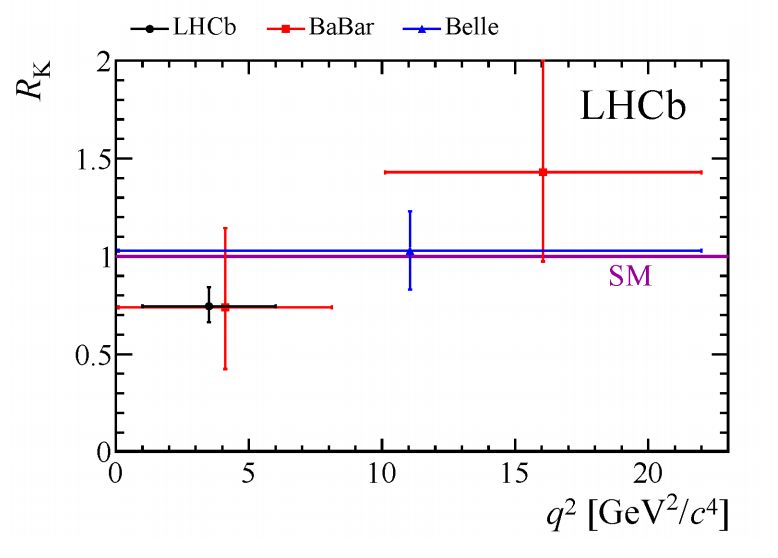
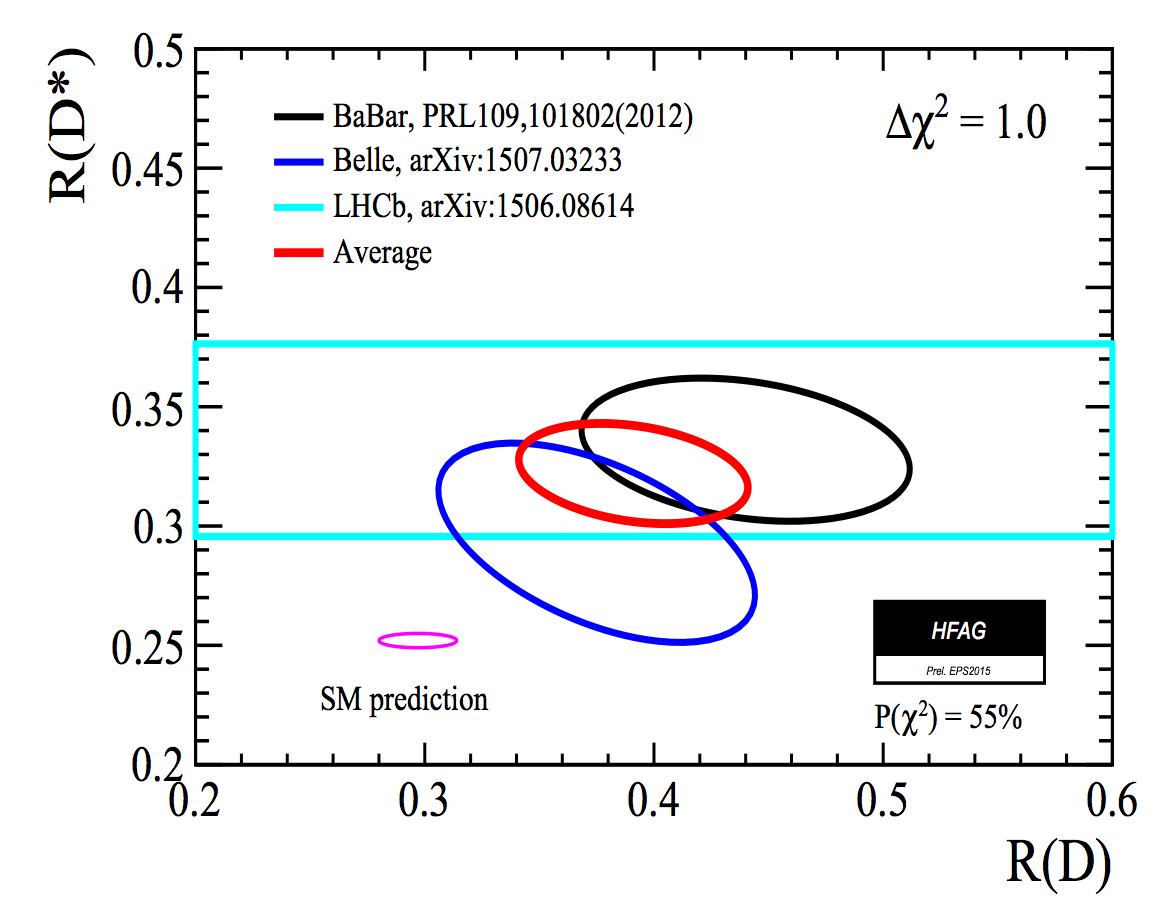
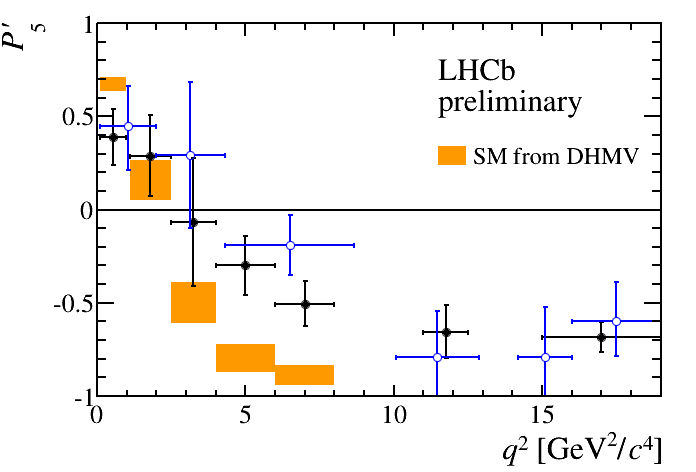
There are several anomalies in B-physics that seem to form a coherent pattern which seems to involve violation of Lepton Universality. In particular, the P'5 anomaly in the decay B0→K*μμ, measurement of RK in the decays B+→K+ll and measurements of the ratio of the branching ratios of B→D(*)τν and B→D(*)lν. Our group is involved in several measurements that can shed light into these discrepancies, as for instance the angular analysis of the decays B0→K*ee and measurements of the ratio of the branching ratios of the decays B0→Kπee and B0→Kπμμ
Several bachelor and master theses are available in this area in different aspects of the analysis, e.g. using machine learning techniques to improve the signal selection, improving the algorithms to identify electrons, studies of background etc... Students should have some knowledge of programming, preferibly C++ and python and basics knowledge of particle physics.
Search for CP violation in b-baryon decays
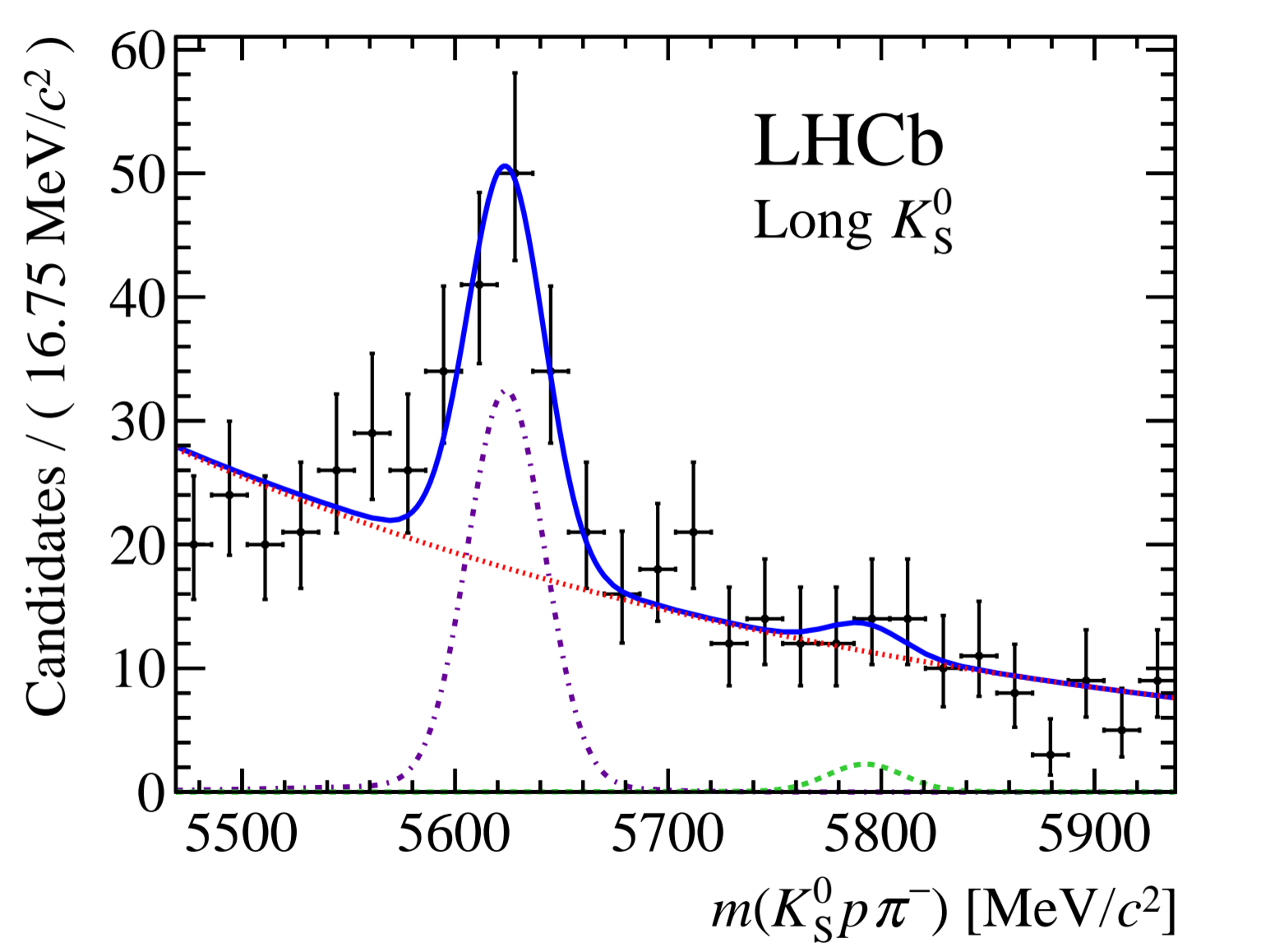 There is an interesting 2σ effect in the measurement of CP violation in the decay Lambdab→KSpπ with data corresponding to 1fb-1, which would be in contrast with Standard Model expectations. An update of this measurement with the full RUN I dataset (3fb-1) is quite compelling. In the same time, it is possible to
observe for the first time the other modes, e.g. Lambdab→KSpK and perhaps some Ξb mode.
There is an interesting 2σ effect in the measurement of CP violation in the decay Lambdab→KSpπ with data corresponding to 1fb-1, which would be in contrast with Standard Model expectations. An update of this measurement with the full RUN I dataset (3fb-1) is quite compelling. In the same time, it is possible to
observe for the first time the other modes, e.g. Lambdab→KSpK and perhaps some Ξb mode.
We have possible thesis for Master students
Hardware studies for the LHCb Upgrade
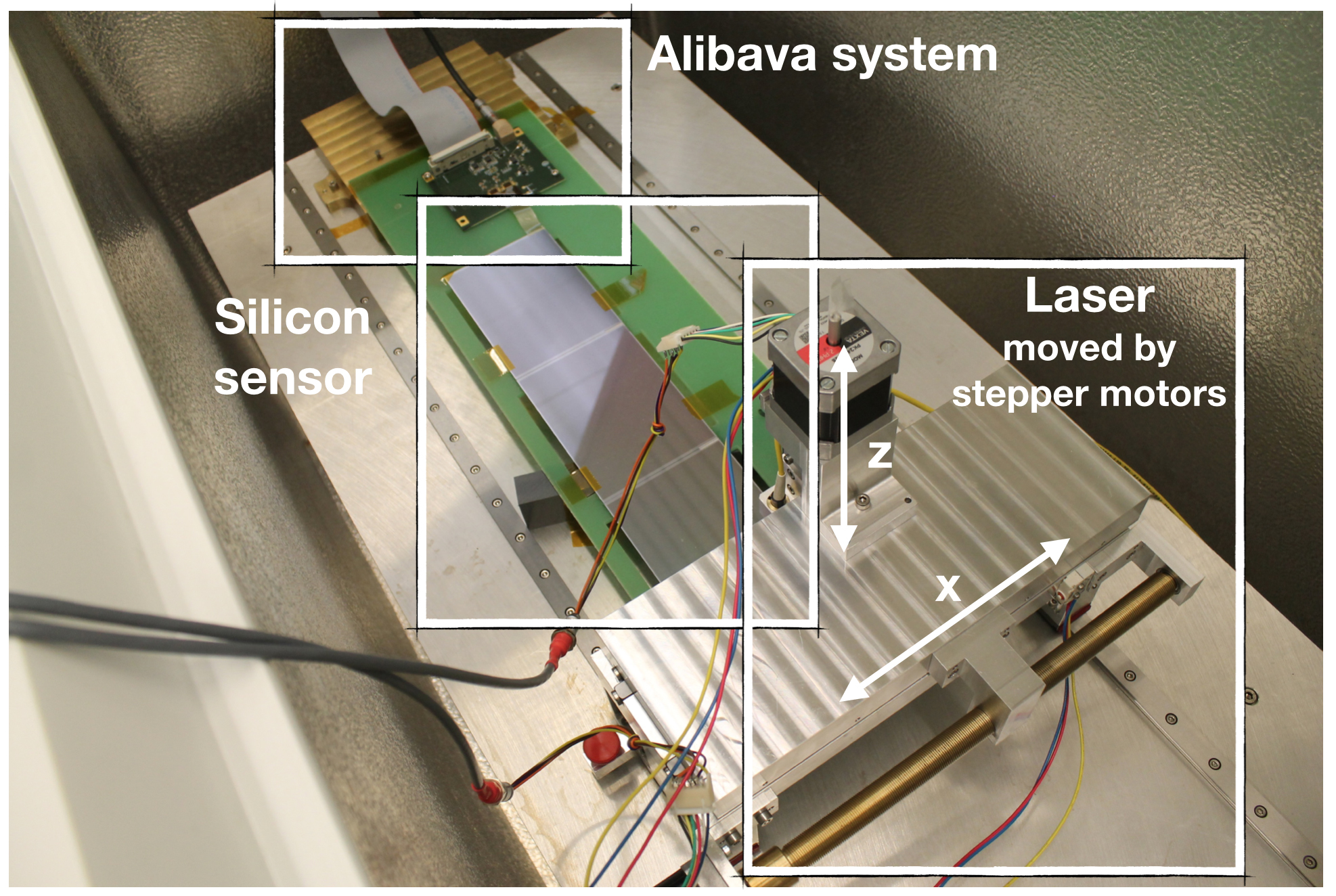 In view of the upgrade of the LHCb detector in 2019, a laser test stand has been designed, assembled, and commissioned here in Zurich and is now ready to test the performances of the silicon sensors that will become part of the Upstream Tracker. In addition, a probe station is available too, which can be used to measure the properties of the silicon sensors, before they are connected to the readout electronics.
In view of the upgrade of the LHCb detector in 2019, a laser test stand has been designed, assembled, and commissioned here in Zurich and is now ready to test the performances of the silicon sensors that will become part of the Upstream Tracker. In addition, a probe station is available too, which can be used to measure the properties of the silicon sensors, before they are connected to the readout electronics.
Several topics are available for a thesis, at both bachelor and master degree levels. Among them:
- Design and assembling of a cooling system for the test stand, in order to be able to characterise irradiated silicon sensors. This includes the realisation of a feedback system and the choice of a cooling technology. A testing phase is foreseen too, in which some key parameters, including temperature stability and time necessary for cooling, have to be determined. It is possible to start right now.
- Comparison between irradiated and unirradiated silicon sensors, including measurements with both the probe station (leakage current, total capacitance, interstrip capacitance, and full depletion voltage) and the laser test stand (charge collection efficiency, charge sharing, and cross talk). Expected to start in January/February for unirradiated sensors and as soon as the cooling system is commissioned for irradiated sensors.
- The design of the Upstream Tracker involves an embedded pitch adapter, that is, a second metallisation layer used to connect the silicon strips and the corresponding front-end electronics input channels. Several geometries of the embedded pitch adapter are currently under investigation and their performances in terms of cross talk have to be measured and compared. Expected to start in January/February.
- Laser beam profile measurements, in order to determine the properties of the laser that is used in all the measurements above. It is possible to start right now.
Studies on the SHiP experiment
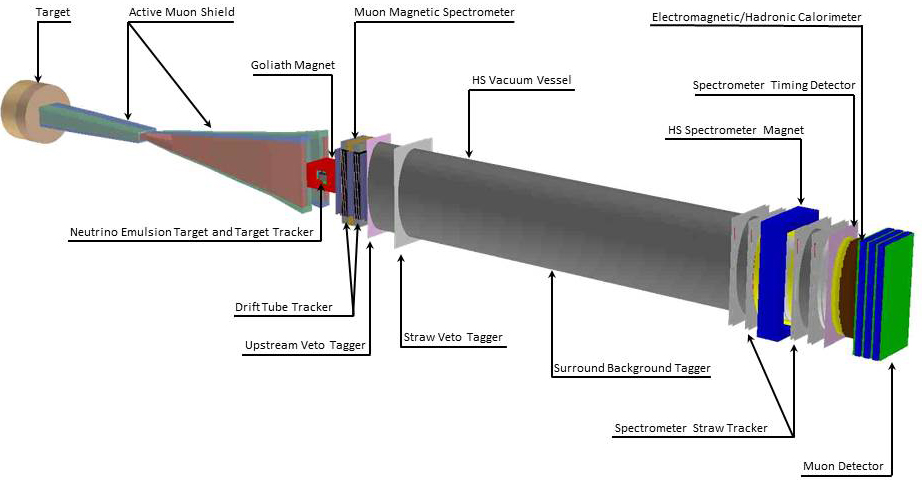 We have master and bachelor thesis in the SHiP experiment available. Possible topics are:
We have master and bachelor thesis in the SHiP experiment available. Possible topics are:
- Studies of signal and background in the SHiP experiment
- Re-Optimization of the geometry of the experiment and the tracking system
- Studies of sensitivity, in collaboration with theorists
